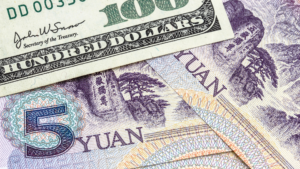Mongolia is ramping up efforts to increase coal exports to China, aiming to reach 100 million tons as demand from its southern neighbor remains strong. The move highlights Mongolia’s growing role as a key supplier in China’s energy strategy, particularly as Beijing seeks to secure stable fuel sources amid global market fluctuations.
The push to expand exports comes as China intensifies its coal consumption, balancing economic growth with energy security. Mongolia, which has already seen a surge in shipments following infrastructure improvements and border trade agreements, is looking to capitalize on this momentum to boost revenues and strengthen bilateral trade ties.
With logistics and transportation improvements, Mongolia has significantly reduced bottlenecks that previously constrained coal deliveries. New rail links and streamlined customs procedures have facilitated faster cross-border trade, allowing Mongolian coal to compete more effectively with other suppliers.
Market analysts suggest that if Mongolia reaches its 100 million-ton target, it could solidify its position as a major coal exporter to China, challenging competition from Australia and Indonesia. However, the pace of expansion will depend on factors such as global coal prices, environmental policies, and China’s long-term energy transition goals.
Despite the bullish outlook, risks remain. A slowdown in China’s industrial demand, potential regulatory shifts, or infrastructure constraints could impact Mongolia’s ability to sustain high export levels. Additionally, increasing pressure for clean energy alternatives might influence China’s future coal import strategies.
For now, Mongolia’s coal sector is benefiting from strong Chinese demand, with export volumes on track to grow further. As both nations continue to deepen trade ties, energy market observers will watch closely to see if Mongolia can meet its ambitious export target in the coming years.













